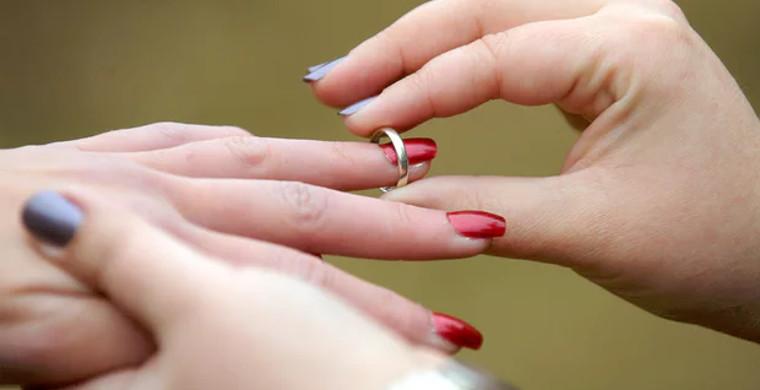C of E hardliners to boycott synod talks on same-sex relationships
Some Church of England traditionalists will stay away from discussions in York amid bitter divisions over issue
By Harriet Sherwood Religion correspondent
https://www.theguardian.com/
9 July 2016
A handful of hardline conservatives in the Church of England are expected to boycott two days of private discussions on same-sex relationships at the General Synod in York.
Reflecting bitter divisions within the church over the issue, a small number of conservative evangelicals will refuse to take part in the discussions, which open on Sunday and are mediated by 23 expert facilitators hired from the worlds of international diplomacy and business.
Some traditionalists fear the act of participating in the "shared conversations", which are aimed at "good disagreement" within the church, implies an acceptance that differing interpretations of biblical scripture are possible. "They have a longstanding concern about the direction of travel," said one bishop.
Intense efforts have been made to persuade hardliners to join the two-day closed discussions among almost 500 synod members. It is seen as a critical stage in the church's lengthy and painful consideration of whether to embrace people in same-sex relationships.
Pete Broadbent, the bishop of Willesden, told synod members: "If you are thinking of boycotting the conversations because they will compromise you in some way then I would say we particularly need to hear your voice."
But Susie Leafe, director of the evangelical group Reform, said she was not taking part "because these conversations are based on a false premise. In a context where there is no discipline within the church for its current teaching, or very limited discipline, we are being asked to have a conversation that focuses on us, rather than focusing on what God's word teaches."
Another conservative evangelical group, Christian Concern, planned to distribute "pledge cards" to synod members, aimed at upholding traditional teaching on marriage.
"The church needs to affirm, as clearly as she can, her commitment to biblically defined, historical marriage. Without that, the church will be held to ransom by emotive influence, self-interest, political pressure and lobby groups, forcing it to devise doctrine based on passing and present fads," said Andrea Williams, Christian Concern's chief executive.
On the prospect of "good disagreement", a paper by the Evangelical Group on General Synod (Eggs) said: "There are some things about which disagreement is possible ... However, over more fundamental things, disagreement within the church is never 'good'."
Jayne Ozanne, a leading campaigner for LGBT acceptance within the church, said it was a "terrible shame" that some synod members would be absent from the discussions. "I for one have had long conversations to try to persuade people to stay," she said.
"It's so important that all views are heard and understood in order for us to learn to trust and respect each other more."
Many synod members were approaching the closed process with trepidation, Broadbent said. They have been given detailed guidance on how to conduct themselves during the two days, much of which will be conducted in groups of 20.
Members should refrain from tweeting or using other social media, and "are requested not to communicate information about the conversation by text, email or phone while the conversation is going on," according to the advice.
Clergy are being discouraged from wearing dog collars, and all participants are advised to wear "casual, comfortable clothes".
The document adds: "No one will be forced to disclose any personal information of any kind. If talking about human sexuality as part of your personal faith journey is important to you, please do so. But participants should not disclose anything which they feel unsafe to share."
A separate document, Grace and Dialogue, which was circulated ahead of the synod, urged members to be aware of body language that could indicate boredom or a dogmatic attitude. Members should not try to dominate conversations and to "avoid jumping on answers you don't like".
The discussions will not come to a firm conclusion, but "the process will inform what we do next", said a senior source.
A meeting of bishops in September may consider whether some form of "pastoral accommodation" is possible, which could take the form of a "service of welcome" to same-sex couples who have undergone a civil marriage.
At the moment, the church does not conduct same-sex weddings nor bless same-sex civil marriages. Gay and lesbian clergy are not permitted to be in same-sex marriages and their relationships are expected to be celibate.
C of E officials have acknowledged that some people may leave the church over the issue of same-sex relationships.
David Porter, the archbishop of Canterbury's chief of staff, told reporters last month that success would not be measured on whether or not the C of E prevents a fracture but on "how we fracture".
He added: "Every major church that has sought to address this issue has fractured in a major way. We have taken a different road to try to ameliorate that: a relational road."
Meanwhile, the United Reform Church voted to permit its clergy to conduct same-sex marriages at its assembly in Southport on Saturday, by 240 votes to 21. The URC, which has about 56,000 members in England, Wales and Scotland, will allow clergy to opt out of conducting same-sex marriages.
Quakers and Unitarians already allow same-sex marriage, and the Methodist church last week agreed to revisit its stance.
In June, Scottish Anglicans voted to remove a clause in canon law that states that marriage is a union of a man and a woman. Before the change can be enacted, it must win a two-thirds majority in a second vote next year.
END














